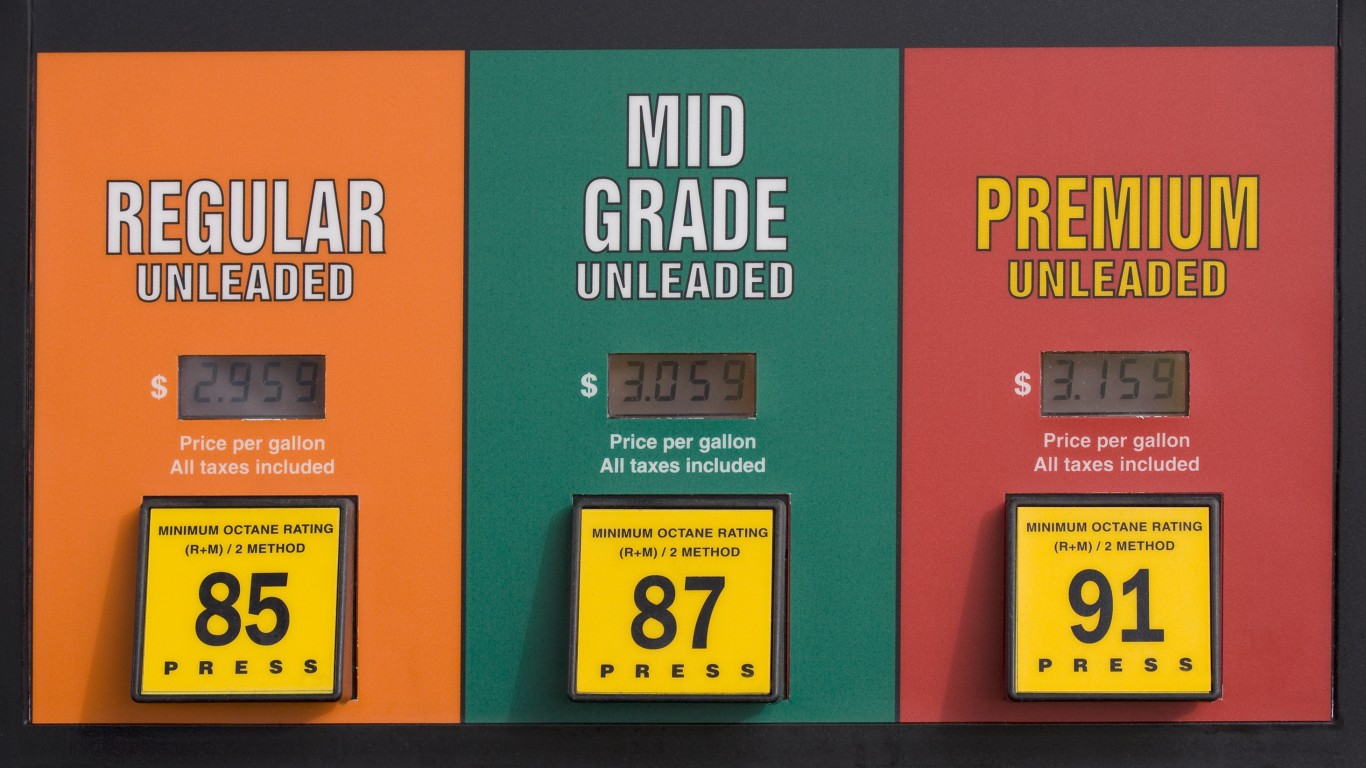
Oil prices spiked as the war in Ukraine threatened to cut off the supply of crude, particularly from Russia, one of the largest producers in the world. WTI hit $96, up from a 52 week low of $57.25. Many traders believe crude prices will pierce $100 and may stay there for weeks.
Gas prices have also surged. Oil represents the single largest factor in these prices. The average price of a gallon of regular gas nationwide reached $3.60 according to AAA. That is up from $2.70 a year ago. By the same measure, the average price of premium gas hit $4.21.
A recent article in Barron’s carried the headline: “$100 Oil Might Just Be the Beginning”. The last time that happened was in 2008, in the midst of The Great Recession. Additionally, gas taxes are high in some states. Transportation costs and refinery costs also contribute to price. States far from refineries like those south of Houston on the Gulf of Mexico add substantially to what people pay at the pump.
Most of the states with low gas prices are indeed near the Gulf of Mexico. Arkansas has the lowest price per gallon in the U.S. at $3.23, followed by Oklahoma, fractions of a cent higher, and Mississippi at $3.24.
Low gas price states always have low gas taxes compared to the national average of $.5709. The figure in Arkansas stands at $.4320. The comparable figure for Oklahoma is $.3840 and for Mississippi $.3719–the second-lowest in America.
At the far end of the spectrum, gas prices in California run $4.80 for an average gallon of regular.
The consequences of high gas prices on the economy could badly damage America’s GDP. For people who commute to work, even over modest distances, to school each day, or drive regularly for other reasons, $4 gas will add hundreds of dollars to their annual expenses. On top of the price of housing, clothing, and medical expenses, household disposable income could disappear. This, in turn, hammers consumer spending, which remains the primary engine of the U.S. economy.
Click here to read States With The Highest and Lowest Gas Prices
Take Charge of Your Retirement In Just A Few Minutes (Sponsor)
Retirement planning doesn’t have to feel overwhelming. The key is finding expert guidance—and SmartAsset’s simple quiz makes it easier than ever for you to connect with a vetted financial advisor.
Here’s how it works:
- Answer a Few Simple Questions. Tell us a bit about your goals and preferences—it only takes a few minutes!
- Get Matched with Vetted Advisors Our smart tool matches you with up to three pre-screened, vetted advisors who serve your area and are held to a fiduciary standard to act in your best interests. Click here to begin
- Choose Your Fit Review their profiles, schedule an introductory call (or meet in person), and select the advisor who feel is right for you.
Why wait? Start building the retirement you’ve always dreamed of. Click here to get started today!
Thank you for reading! Have some feedback for us?
Contact the 24/7 Wall St. editorial team.




